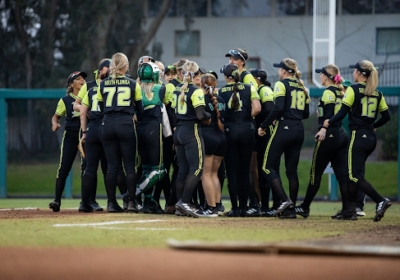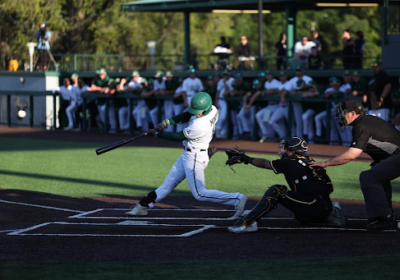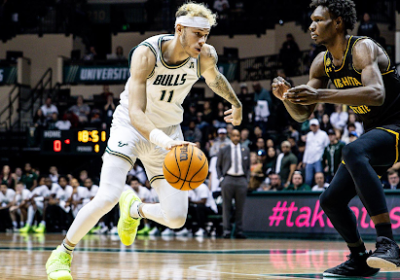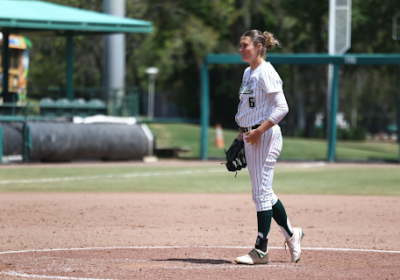Commentary: AAC deserves to be recognized as an elite basketball conference

USF men’s basketball coach Orlando Antigua speaks during a round-table discussion on Tuesday at the Amway Center in Orlando. The Bulls were picked 10th in the AAC preseason coaches poll.
ORACLE PHOTO/JEFF ODOM
ORLANDO — When one thinks of the best conferences in college basketball, there are a handful of obvious choices that come to mind.
There’s the ACC, of course, headlined by powerhouses Duke, North Carolina and Syracuse. Throw in the Big Ten anchored by Michigan State and sprinkle a pinch of SEC on top, with Kentucky and Florida leading the charge.
But you know who should be lumped right up there with those “power” leagues? The American Athletic Conference.
On Tuesday morning, coaches and players from all 11 conference teams gathered inside the Amway Center for the league’s annual media day. Among the chatter of fresh beginnings, bright outlooks and what new scandal Larry Brown was cooking up this month at SMU, conversation quickly turned to a sore subject:
The clear disrespect outsiders have for the league.
“For the conference not to get the attention it deserves, and that it deserved last year, I think it’s a shame,” USF coach Orlando Antigua said.
He’s right. It’s absolutely absurd.
There is simply no reason the AAC doesn’t receive its share of consideration from not only the national pundits, but those inside boardrooms deciding who’s in or out on Selection Sunday.
Before using the argument that the conference is only in its third year of existence, consider this: the AAC has determined two of the past three national champions in Division I with Louisville taking it all in 2013 and Connecticut following suit one year later.
Not the NIT. Not the Maui Invitational. The national championship. That’s like shoving aside the SEC in football even though it continues to churn out winners and playoff contenders.
“I (played) at North Carolina and coached Kansas and UCLA, and they were phenomenal programs in phenomenal conferences. But the day we were part of the American conference, I felt it was pretty strong and really, really underrated,” said Brown, whose Mustangs were snubbed from last year’s tournament despite finishing 27-7.
“When you consider Louisville two years ago got a No. 4 seed after the year they had, I kind of realized people didn’t have a lot of respect for this league.”
SMU wasn’t alone in being left on the outside despite a quality record. Temple (23-10) and Tulsa (22-10) also came up short in their bids to take part in March Madness.
That has to change. The only question is how to make that change happen.
If winning doesn’t sway voters — and five teams in the AAC finished with 20 or more wins a year ago — what does? Maybe the conference can copy Miami fans, who flew “Fire Al Golden” banners until the school canned him on Sunday, and fly similar messages over NCAA headquarters. It can’t hurt to try.
If that doesn’t work, Plan B is to continue putting out a quality product league-wide, something it should have no trouble doing this year.
“I’m expecting and looking that this year people in the national media and the normal fan will get a chance to say ‘Holy moly, hold on a second. They’ve got great coaching, they’ve got really talented players across the conference and that’s a really quality, good league,’” Antigua said.
“That’s what I see. From top to bottom, you’ve got really good teams with really good players.”
UConn’s Kevin Ollie echoed Antigua’s assessment and said he believes this is the deepest the conference has ever been.
“This conference is going to be here for a long time,” Ollie said. “It’s going to be very prominent. You’re going to be talking about a lot of teams in this conference doing some great things over this college season.”
For now, all the AAC can do is hope it passes the eye test from those that matter, and it should. It deserves it.
“Hopefully,” Brown said, “people will recognize that when it’s time for Selection Sunday.”






